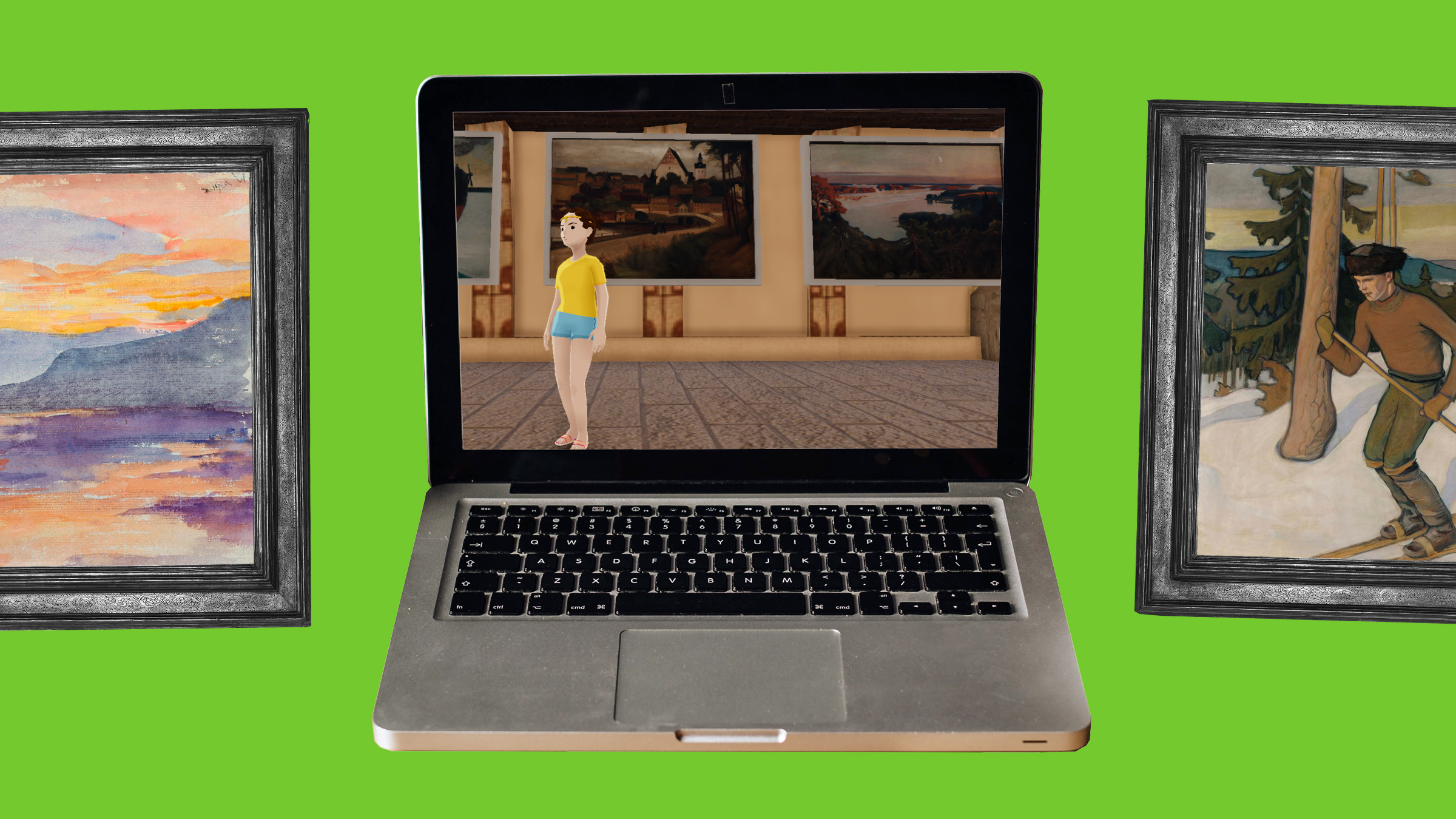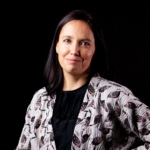What kinds of new opportunities for involvement can the decentralised web, known as Web 3.0 open up? How can we accelerate the emergence of skills, networks and business related to the next stage of internet development to achieve the renewal of the economy and strengthen competitiveness? How does the current environment enable the creation and competitiveness of businesses related to this sector? And what opportunities can service development related to the metaverse of the future offer in Finland? Sitra is seeking answers to these and other questions by launching work on Web 3.0.
One example of this work is the joint pilot project between the Finnish National Gallery, Decentraland and Sitra to create a digital version of the Finnish pavilion at the 1900 Paris World Fair in a virtual 3D world. The aim of the experiment is to increase understanding and dialogue on what the virtual art experience of the future could look like. It is also intended to explore how the virtual world works and the opportunities and features of Web 3.0.
Sitra’s role is to be a catalyst in maintaining a vision of the future, developing new approaches and bringing together different stakeholders to support Finland’s renewal. These will also be realised in this experiment in the search for new knowledge.
Sitra aims to enable Finland to become an international pioneer of the fair data economy. It wants to inspire different entities in Finland to get involved and influence direction in which Web 3.0 develops.
Web 3.0 is being heavily invested in, and it is important that it develops on the basis of European values, fairness, openness, individual rights, free enterprise and a balance of the interests between different groups.
The metaverse is part of the next stage of the internet, Web 3.0,
The internet is evolving towards the next stage, known as Web 3.0, or the decentralised internet. Blockchains, metaverses, virtual reality and decentralised innovations are all part of this.
A metaverse involves different visions of the future internet, where a virtual world is built to complement the physical world and people can easily move from one service or environment to another.
The Finnish Metagallery pavilion at Decentraland can be seen as a Finnish exploration of the potential of virtual worlds.
The original pavilion featured frescoes by Akseli Gallen-Kallela, among other attractions, the virtual versions of which can now be viewed in a virtual world over a century later.
Virtual worlds and the art exhibitions they contain enable people to experience art without being limited by geography. Rather than replacing existing physical exhibition spaces, they are likely to operate alongside them. Virtual worlds will also enable shared experiences and foster a sense of community.
Art, culture and the creative sectors are natural forerunners in the metaverse. They have a low threshold for experimentation.
At the same time, these sectors are being driven to innovate by structural challenges, such as reaching new audiences and the need to create channels for doing so.
The experiment will analyse the level of interest in experiencing art in a virtual environment. It will also serve as a step towards exploring the opportunities created by decentralised autonomous organisations (DAOs) and the emergence of a community around them in Finland.
Decentraland is one example of a DAO.
Finland needs to keep abreast of Web 3.0 developments
Sitra aims to accelerate the evolution towards Web 3.0 and related services and reforms, as well as the emergence of the necessary know-how and ecosystem in Finland. Sitra has identified Web 3.0 as a key future development that Finland must be familiar with and active in, and that Finnish individuals and organisations should strive to influence.
It’s in Finland’s interest to better understand what Web 3.0 and its various components, including metaverses, are all about.
Experimentation is one way to make complex changes more concrete. This collaborative experiment in the field of art presents opportunities to explore not only the metaverse but also new forms of participation and decentralisation.
The joint experiment with the Finnish National Gallery and Decentraland provides information on virtual worlds and their potential for participation. It can also help develop Web 3.0-related business in Finland. Sitra has provided expert assistance to the experiment.
Need for regulatory reform
In addition to the pilot project, Sitra is launching a study of legislation with various partners, including key government ministries and the Finnish Tax Administration. The study aims to identify the main areas of legislation and policies that need to be updated to make it easier to start Web 3.0 companies and improve their ability to operate in Finland. The study is due to be published in spring 2023.
In a second study, Sitra will provide perspectives on the threats and opportunities of Web 3.0 solutions in terms of ecological, social and economic sustainability. Sitra has already highlighted the importance of bringing a sustainability perspective to the debate on the metaverse.
What does Web 3.0 have to do with a fair data economy?
Sitra is building a fairer data economy and believes that the development of the data economy will be one of the key phenomena changing society in the future. The internet’s current stage of development, Web 2.0, can be considered unfair because it prioritises the interests of data-hoarding digital giants at the expense of the interests of individuals and society.
The decentralised internet of Web 3.0 can be a fairer internet, where individuals have more control and trust over the use of their data. Decentralisation also in a way represents a return to the original ideals of the internet.
Web 3.0 thinking includes a strong privacy focus, which makes it a such an attractive opportunity.
In a decentralised model, data needs to be accessible and shareable. This requires ecosystems, rules, data protection and trust in a whole new way. Sitra wants to accelerate this development.
What Web 3.0 becomes will ultimately depend on all of us. It depends on the ground rules, legislation, technologies and business models that we develop. It is also important to ensure that the next stage of development is based on European values .
The metaverse offers new meeting places
The first stage of the internet gave everyone access to information and content. The second stage created new forms of interaction. Various social media services and other two-way means for communicating and creating groups and communities emerged.
The next major development is expected to be the growth of new kinds of virtual spaces and meeting places. These will allow for a real sense of presence in digital environments.
These metaverses are still in their early stages, and the user experience does not yet deliver a genuine feeling of presence. The current stage of development could be compared to the first mobile internet services of the early 2000s, which were clumsy but still gave a glimpse of what was to come.
There are many high expectations, some even unrealistic, associated with the metaverse. For users to experience a real sense of presence, the underlying technologies will need to develop significantly from their current level.
This is now an area of major investment. The top manufacturers of phones and other consumer electronics are spending billions to develop devices that deliver as much added value as possible. The introduction of the first iPhone in 2007 revolutionised the mobile internet. We can expect a similar shift with the development of the metaverse.
What is the current stage of development in Finland?
Finland is already seeing the emergence of strong pool of expertise, businesses and funding related to metaverse services and applications. This must continue to strengthen and grow.
Finland needs to position itself as one of the leading countries when it comes to Web 3.0. This will help create new jobs, renew the economy and maintain competitiveness.
It is also in Finland’s interest to be actively involved in ensuring that the metaverse is built on European values. And it is important to develop interoperability and standards jointly with the various parties involved.
The grand opening and networking event of the art exhibition experiment by Sitra and the Finnish National Gallery took place on 6 October 2022.




